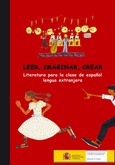A quantitative SWOT analysis for Spanish education
This paper aims to contribute to the strategic analysis of the Spanish system with the ultimate goal of helping to guide the improvement of its educational policy. In the field of education, SWOT analyses have so far focused on university institutions and, to a lesser extent, on schools. However, available SWOT analyses of national education systems are scarce and deficient. Two procedures have been used: a qualitative SWOT analysis (Strengths, Weaknesses, Opportunities and Threats) and the subsequent application of the quantitative technique of the Analytic Hierarchy Process (AHP). The preparation of the SWOT matrix has been carried out at two hierarchical levels: that of the sub-factors and that of the indicators. For internal factors (WS), resources, processes/policies (governance) and results have been taken as the basis. For external factors (TO), the PESTEL model has been adopted, limited to the political, socio-economic and technological categories. The specification of the sub-factors in indicators has been supported by the results of a significant number of national and international research and statistics. The subsequent application of the AHP technique has identified relative priorities based from comparisons within the multilevel hierarchical structures. The initial 38 SWOT indicators have been reduced to 17, of which, with a global priority of more than 0.050 and a low consistency ratio, the following stand out: intergenerational transmission of the educational level of parents, new technological tools for improving performance, Next Generation funds, lack of a basic political agreement, and low level of excellence. Based on the results, the discussion focused on analysing the strategies of the maxO-minW and minTmaxO types and on formulating evidence-based recommendations aimed at implementing the resulting strategies.
- Idioma
- Castellano
- Editorial
- Instituto Nacional de Evaluación Educativa
- EAN
- 9789200255137
- Edición
- 1
- Fecha publicación
- 22-12-2023
Libros relacionados

Líneas generales de política científica en España (1984)

Actas del XIV seminario de dificultades específicas de la enseñanza del español a lusohablantes. Tienes la palabra: estrategias para el aprendizaje del léxico en ELE. Saõ Paulo 16 de septiembre de 2006-2007

Leer imaginar crear Literatura para la clase de español lengua extranjera

Documentación pedagógico-artística del programa MUS-E ®

Tica Tico. Los misterios del agua

Adult Skills in Focus 10. ¿Cuánto tiempo emplean los adultos en la evaluación PIAAC y por qué es importante este aspecto?

Boletín Oficial del Ministerio de Educación y Cultura año 1998-1. Actos Administrativos. Números del 1 al 5 más 3 números extraordinarios y 1 anexo

Resumen Informativo. Septiembre 2016. INCUAL

Boletín Informativo INEE N.º 1 enero 2021

Infoboletín nº 28. Boletín de la Consejería de Educación en Países Bajos



